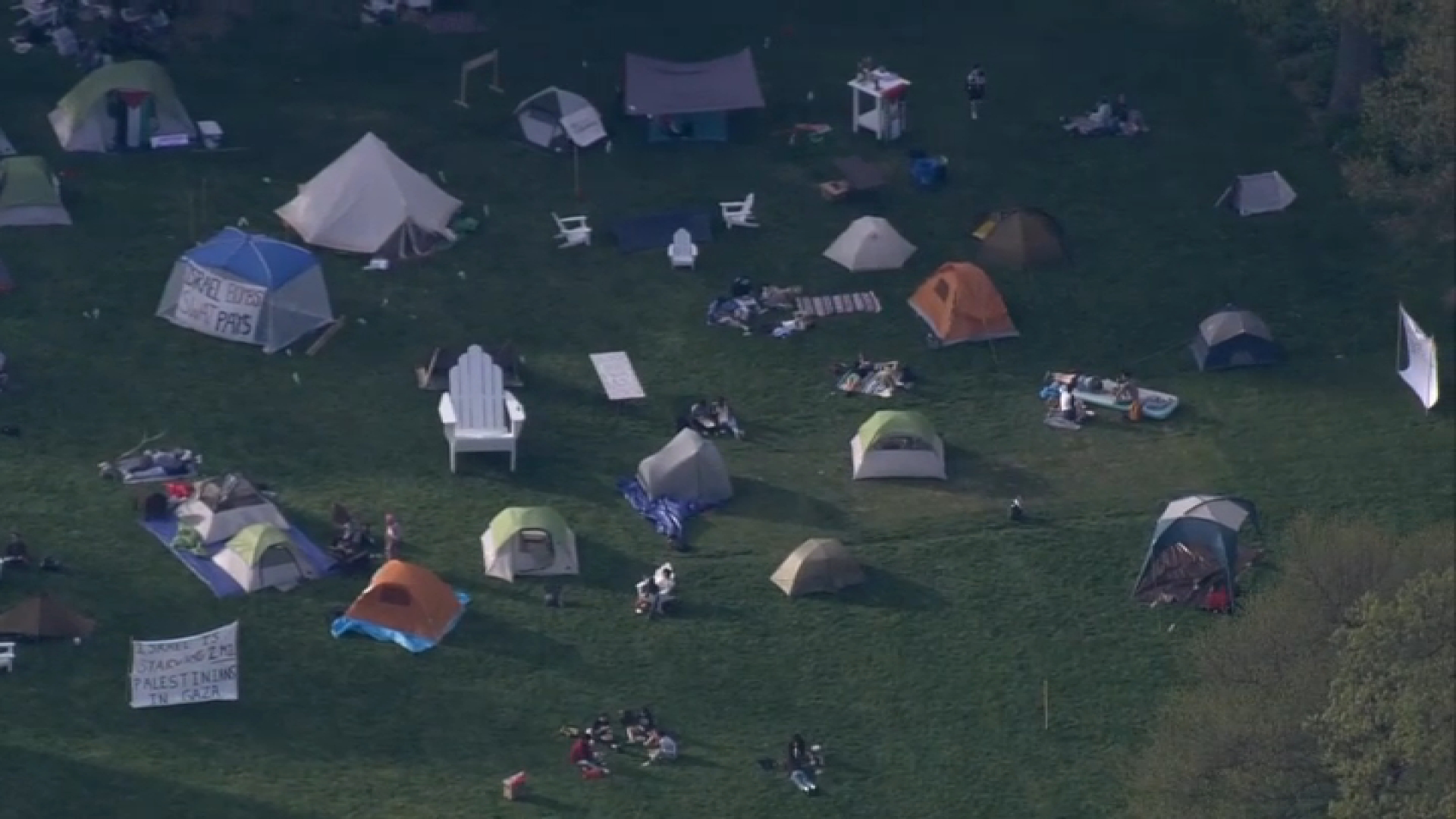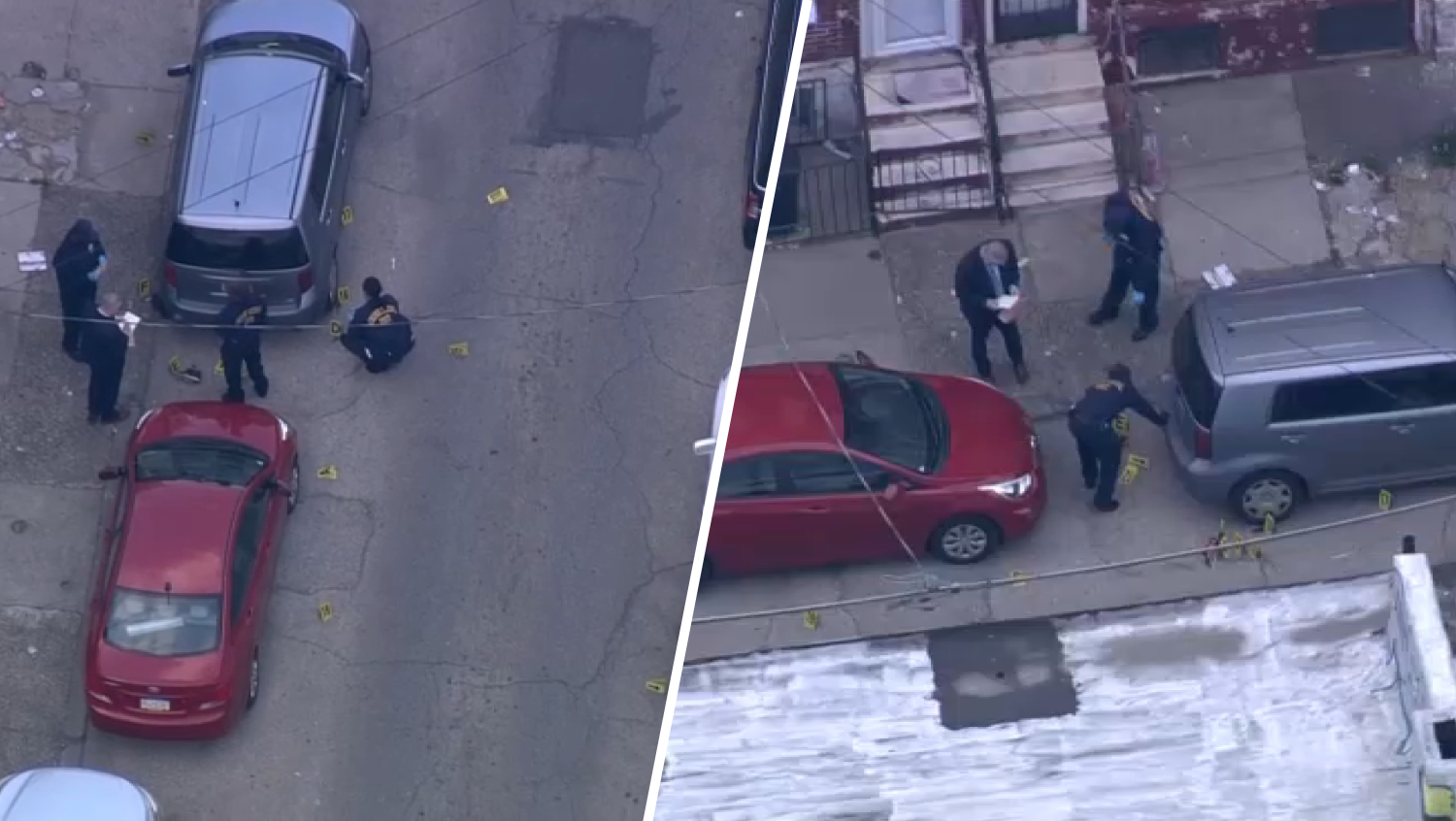The family of a 10-year-old girl who they say has been denied a life-saving lung transplant because of her age are appealing to the public in hopes of finding a donor to save their child.
Family members say Sarah Murnaghan has end-stage cystic fibrosis and is on a ventilator at the Children's Hospital of Philadelphia. They say she is a top candidate for an organ from a pediatric donor but few are available, and a lung from an adult donor would be offered first to all adults in the region under existing policy.
"We are told her only hope is a direct donation from the public," said the family. "We recognize how difficult the end of a person’s life is – we are at that point with Sarah. And we must now ask for the single greatest favor any parent can, and that is to consider naming our child an organ recipient should someone lose the life of a loved one in the very near future. Anyone who would like to commit their loved ones' lungs to Sarah should designate her as the lung recipient when donating organs."
While medicine may be overly complicated to some, for Janet Murnaghan, it boils down to a very simple concept.
“In basic emergency medicine you treat the sickest patient first,” she said. “That is what we’re asking for.”
Sarah was diagnosed with cystic fibrosis when she was 18-months-old.
The genetic disease primarily affects the lungs and digestive tract by causing mucus to clog up the airways, making it hard for the person to breathe. It can also cause a bacterial infection and make it difficult to digest food.
The most devastating fact about the illness, however, is that it’s degenerative.
“It's life-threatening,” Janet told NBC10.com. “The older you get, the sicker you get.”
Local
Breaking news and the stories that matter to your neighborhood.
Sarah was placed on a list to receive a lung transplant on December 7, 2011. Eighteen-months later however, she still hasn’t received one, according to her mother.
The girl has been at the Children’s Hospital of Philadelphia since February and now needs a ventilator to breathe.
So why hasn’t a patient in desperate need of a transplant received one? According to Janet, it’s a combination of a flawed system and discrimination.
“My child is being discriminated against based on her age,” she said.
The Organ Procurement and Transplantation Network (OPTN) created a donation and transplantation system enforced through the United Network for Organ Sharing (UNOS). Patients in need of a transplant would receive new lungs on a first come, first serve basis.
But a few years ago, the law was changed. The OPTN implemented the Lung Allocation Score (LAS) which gives the transplant to the sickest person, rather than the person who has waited the longest.
“What that’s done is amazing for people waiting for organ donations,” said Janet. “Fewer people are dying because the sickest people are receiving the lungs first.”
However, there is one catch. Children under the age of 12 are on a separate waiting list and are only offered adult lungs after all adult patients have the chance to receive them.
“What this ruling didn’t take in to account, is that years ago pediatrics really needed pediatric lungs,” said Janet. “But as technology and medical advances have come, pediatric patients can have just as good an outcome with adult lungs by taking what’s called, a low-bar transplant. The outcomes are just as good.”
Joel Newman, assistant director of communications for UNOS, says the policy was implemented to create equality for all patients.
"What we're tasked with doing is developing a policy that tries to fit all needs as equitably as possible," he said.
Newman says young transplant recipients have very different needs than adults, which complicates the process.
"There are size and capacity issues with the very young candidates," he said. "They tend to be very small; how they develop and how they progress in their lung disease is different for adolescents and adults who are the majority of the people who need lung transplants."
Janet tells NBC10.com Sarah now has the most time accrued on the under 12 transplant list. Despite this, they didn’t receive any offers.
“We waited and waited and she got sicker,” the mother said. “Her doctors decided that we should try to get her a low-bar transplant. We listed her for an adult lung transplant, but still nothing. She got sicker and sicker.”
As the waiting-game continued, Janet says she researched the average LAS score for people who received a transplant.
“People usually received lungs when their LAS score was in the 40s,” she said. “My daughter’s LAS score was about 60, much higher than that.”
It wasn’t until a few weeks ago when Janet says she learned why a transplant still was not available for her daughter.
“It was explained to me that while my daughter has an LAS score of 60, any lung that matched her would not be offered to her until it was offered to everyone over 12 with any LAS score,” she said. “Her score was irrelevant.”
Newman says UNOS has studied data for how quickly people would die without a transplant and how well they improved after receiving the new organs.
"It is not necessarily as representative of the needs of small children," he said. "Thereby that’s another reason why there are two ways that score is applied."
Data compiled by the OPTN shows a far greater availability of adult lung transplants in comparison to child transplants. According to the data, in 2012, only 20 lung transplants were available to children 10 years of age or younger. In comparison, 1,688 lungs were available for patients over the age of 11.
There are currently 106 people in Sarah's transplant region, according to Janet.
“If everybody on that list is offered adult lungs before my daughter is offered them, then any lungs that my daughter will be offered will be bad quality,” she said.
Janet is now asking for UNOS to change their policy.
“They can’t give preference,” said Janet. “But we are not asking for preference for Sarah. We are asking for equality. We are asking for Sarah to compete, based on the severity of her illness, the way that everybody over 12 can compete."
Janet insists that UNOS could change Sarah’s file in their computer system to enter her as an adult, which would allow her LAS score to factor in to the availability of a transplant.
“They’re claiming this can’t be done,” said Janet. “It can.”
"Our policy has been to try to address the needs of all candidates in an equitable fashion so that if one person gets an advantage then another group of candidates or another person would not be disadvantaged," said Newman.
"That being said, we do look at policy all of the time. The policy has been moved and changed. If there are issues that may result from this discussion that allow us to improve the policy and make it better for all we will certainly do so."
Janet also says that regional adult transplant centers could decide individually to allow Sarah’s LAS score to compete. Yet, while Janet is fighting hard to save her daughter’s life, she also says her fight is for other families as well.
“We want to change this permanently in UNOS,” she said. “We don’t want another family in this situation to be sitting there while their child is dying. We think the law needs to change."
Janet created an online petition on Change.org and is hoping she’ll receive enough support to save her daughter. But there isn’t much time left.
“She has weeks at most,” she said. “We’re not talking months. We’re talking weeks.”
While Newman could not say whether UNOS would change its policy, he did say the organization is discussing the issue heavily.
"Certainly, with the issues that have been raised, we will continue to discuss it as an organization," he said. "I can't give you a specific answer at this time. But that set of issues and concerns is something that we’re looking at. We will certainly address it as best we can."
Kathleen Sebelius, the secretary of the federal Health and Human Services department, says she wants a review of the allocation policy as well as new approaches to promote pediatric and adolescent organ donation.
Congressman Pat Meehan, whose district includes Sarah's hometown of Newtown Square, is lobbying for Sebelius to place Sarah on the adult list.
"We have a 10-year-old girl," Meehan said. "if she was 12 we wouldn't even be talking about this. They're saying that medically it is doable and that she could prosper if she was able to get this transplant. We've got the best hospital in the world capable of doing it. All the ingredients are here."
According to the Murnaghan family however, the secretary's efforts won't save Sarah.
"The Secretary recognizes that the policy is flawed and needs to be changed, and she directed the OPTN to immediately evaluate and review the current policy," wrote the family in a released statement. "This is a very positive step for children and their families who may find themselves in similar circumstance. However, Sarah, and other children like her who need a transplant now, do not have the luxury of time to wait for a lengthy bureaucratic change. Essentially, Sarah has been left to die."
The family says that Sarah suffered a setback on Sunday, developing a high fever. They also say her CO2 levels increased.
"It's a day by day situation right now," said the girl's father, Fran Murnaghan.
The family says Sarah's best hope to survive is through a direct donation from someone who lost a loved one.
"If you do find yourself in that situation, we would be eternally grateful if you spoke to your doctor and potentially directed lungs to Sarah," Fran said.
The family's church, Saint David's Episcopal, made printed donation cards which read, 'In the event of my death, give my lungs to Sarah Murnaghan.'"
Reverend Hillary Raining says it's just one way the church is supporting the family.
"We go and we share tears and prayers," she said. "We are there for her as a Christian witness."
The church will hold an interfaith prayer service for Sarah this Friday at 7 p.m. All are welcome and donor cards will be available.



